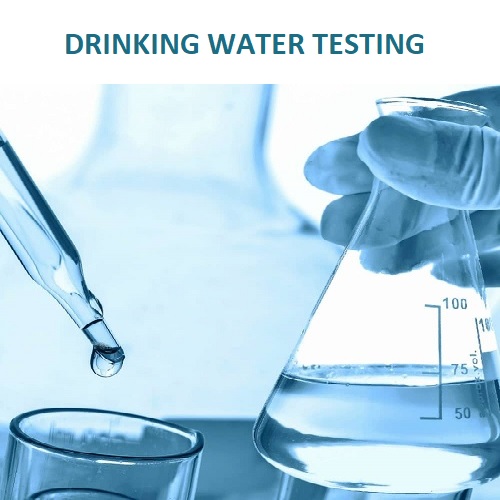Reliable Water Testing Services Near Me: Know What's in Your Water
Reliable Water Testing Services Near Me: Know What's in Your Water
Blog Article
Learn Just How Water Testing Can Discover Contaminants and Secure Your Family members's Wellness
Comprehending the relevance of water testing is essential for securing your family members's health and wellness, as our water system can harbor hidden threats. From germs to hefty metals, pollutants pose severe dangers, often undetected without proper evaluation. By checking out the technicians of water screening, one can discover the unnoticeable dangers prowling in seemingly excellent water sources. Yet, exactly how do you identify which tests are needed for your family, and what steps should be taken when possible threats are exposed? As we browse these concerns, the path to making certain water safety and security and a healthier living environment comes to be clearer.
Value of Water Checking
Identifying the important role water plays in maintaining life, the significance of water screening can not be overstated. Water is an essential resource, essential for drinking, cooking, cleanliness, and different industrial processes. Its top quality directly impacts public health and wellness and well-being. Making sure that water is free from dangerous compounds is crucial for keeping healthy and balanced communities and ecological communities.
Water testing acts as an aggressive procedure to identify possible hazards that might endanger water top quality. Via methodical analysis, it helps spot physical, chemical, and biological criteria that can present dangers to human wellness. Routine screening enables for the early detection of concerns, assisting in timely interventions to protect against prevalent contamination and connected illness.
Moreover, water testing sustains governing conformity, guaranteeing that water carriers meet well established safety standards and standards established by governmental authorities. It fosters openness and accountability, building public rely on the water system system. Screening provides beneficial information that educates water administration approaches, enabling sustainable usage and conservation of this priceless source.
Essentially, water screening is an essential tool that safeguards public health and wellness, makes certain regulatory adherence, and advertises the sustainable management of water sources. Its relevance in shielding both areas and people can not be underestimated.
Usual Water Contaminants
Amongst the various elements that can jeopardize water high quality, usual water pollutants include a range of physical, chemical, and organic materials that posture considerable dangers to human health and wellness and the atmosphere. Physical pollutants commonly entail debris or organic materials put on hold in water, which can impact clearness and preference.
Biological pollutants, mostly germs, infections, and protozoa, develop from human and animal waste entering water systems. Virus such as E. coli, Giardia, and Cryptosporidium are well-known for creating intestinal ailments and can be especially unsafe to little ones, the senior, and those with compromised body immune systems. Nitrites and nitrates, often coming from plant foods, position an additional wellness threat, particularly to infants, potentially bring about conditions like methemoglobinemia or "blue child disorder."
Additionally, arising impurities, including drugs and individual treatment products, have raised concerns due to their perseverance and unidentified long-lasting effects. Understanding these pollutants is crucial for implementing reliable water treatment techniques and ensuring risk-free drinking water.
How Water Testing Works
Comprehending the range of contaminants in water highlights the significance of reliable screening methods to protect public health. Water testing is an organized process made to determine and evaluate various contaminations that might present dangers to human health.
Once examples are accumulated, they go through laboratory evaluation making use of numerous techniques. Chemical testing frequently includes spectrometry or chromatography, both of which can identify and gauge details chemical substances. For microbiological screening, methods such as membrane layer purification or enzyme substrate tests are utilized to spot pathogenic microorganisms. Additionally, physical qualities like pH, click resources turbidity, and color are analyzed to give insight right into the general top quality of the water.
The specific techniques used in water testing depend upon the details pollutants of concern and the water's meant usage. By constantly applying these strenuous screening procedures, scientists and public wellness authorities can make sure the safety and top quality of water, thereby safeguarding communities from prospective health threats.
Picking the Right Examination
The very first step is analyzing the water source-- be it community, well, or surface water-- as each has unique threats. Metropolitan water could require screening for disinfectant byproducts, while well water may need screening for nitrates, bacteria, and hefty metals.
Following, think about environmental factors and recent events. Neighboring farming activities could demand screening for herbicides and chemicals, whereas commercial zones could call for checks for chemical toxins. Furthermore, any changes in water taste, smell, or look ought to prompt details screening for usual contaminants like lead, chlorine, or biological pathogens.
Professional water testing services provide comprehensive packages that target a wide variety of possible pollutants. These packages usually straighten with standards set by the Epa (EPA) or regional wellness departments. For an extra tailored strategy, speaking with a water quality specialist can provide understandings right into which particular tests are required based on local worries and individual wellness needs, making certain the security of your household's wellness.

Maintaining Water Safety

In addition to screening, proper upkeep of water systems plays an important duty. This consists of checking and servicing pipes systems, tank, and septic tanks to protect against leaks or backflow that can present impurities - Well water testing services. Utilizing water filtration systems developed to resolve particular regional concerns can further guard against pollutants, supplying an extra layer of security
Public understanding and education and learning are similarly crucial in maintaining water safety. Communities need to be educated concerning potential risks related to local water sources and the required actions to reduce them. Encouraging public participation in water safety and security campaigns fosters a cumulative duty that improves overall performance.
Eventually, a detailed strategy that integrates routine screening, system upkeep, and community participation is vital in guarding water high quality. By doing so, family members can be assured of clean and secure water, safeguarding their health and wellness and well-being.

Verdict
Routine water testing is important for recognizing contaminants such as germs, click for more info hefty steels, and read here chemicals that posture health and wellness risks. By analyzing water samples, undetected hazards can be identified, making sure the stipulation of secure alcohol consumption water.
Comprehending the importance of water testing is important for guarding your household's wellness, as our water supply can harbor unseen threats.Water testing offers as an aggressive step to recognize potential risks that might jeopardize water quality.Furthermore, water testing sustains governing conformity, ensuring that water providers meet recognized security standards and guidelines established by governmental authorities. Metropolitan water could require testing for disinfectant results, while well water might require testing for nitrates, microorganisms, and heavy metals.
Normal water screening is an essential part in keeping the high quality of water resources, allowing timely treatments prior to contaminants get to hazardous degrees.
Report this page